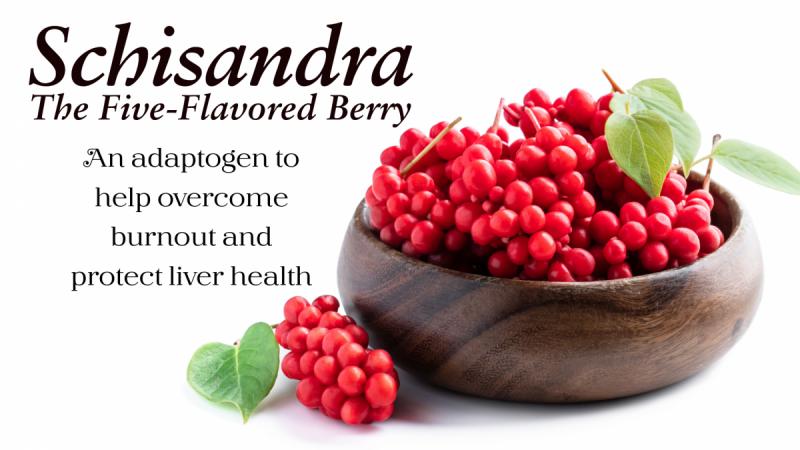
One of the important things I learned from studying the pioneer herbalist, Samuel Thomson, was the importance of tasting herbs. In his own words:
This practice of tasting herbs and roots has been of great advantage to me, as I have always been able to ascertain what is useful for any particular disease, by that means…I was often told that I should poison myself by tasting everything I saw; but I thought I ought to have as much knowledge as a beast, for they possess an instinct to discover what is good for food, and what is necessary for medicine.
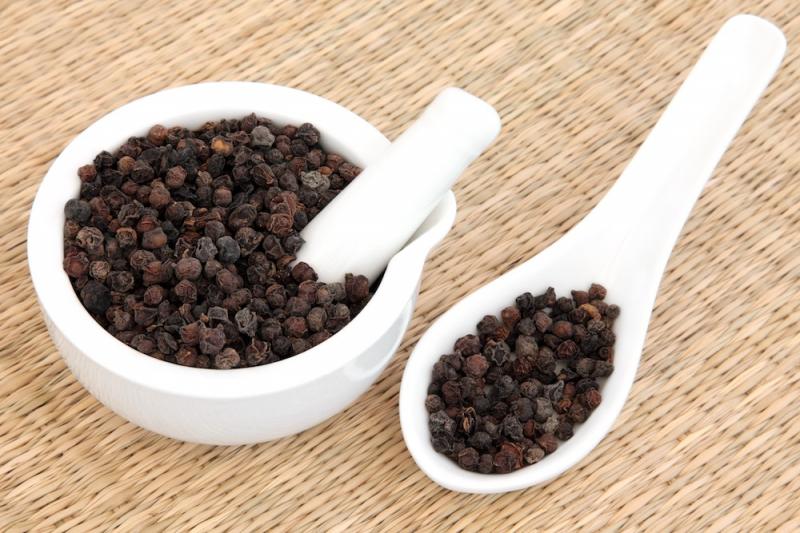 After reading this, I decided to start developing my senses. I regularly taste and smell medicinal plants. This practice has not only sharpened my senses, it has also helped me understand how to use herbs more effectively.
After reading this, I decided to start developing my senses. I regularly taste and smell medicinal plants. This practice has not only sharpened my senses, it has also helped me understand how to use herbs more effectively.
That said, I would highly recommend that you taste—schisandra. Not the tincture or powder, but the actual berries. When you chew on a dried schisandra berry, you’ll experience different flavors starting with the outside skin, then the inner fruit, and finally the seeds inside. You’ll experience why it’s Chinese name, wu wei zi, means five flavored herb. It has all the five flavors recognized in the TCM (traditional Chinese medicine)— sweet, sour, salty, bitter, and pungent.
All of these flavors hint at a wide variety of phytochemicals and also suggest that schisandra has a balancing effect on the system. In TCM, schisandra is believed to help harmonize all of the five Chinese elements— earth, wood, water, metal and fire. However, the dominant taste for the entire berry when ground into powder is sour, which suggests it has a cooling or anti-inflammatory action.
Schisandra and the Liver
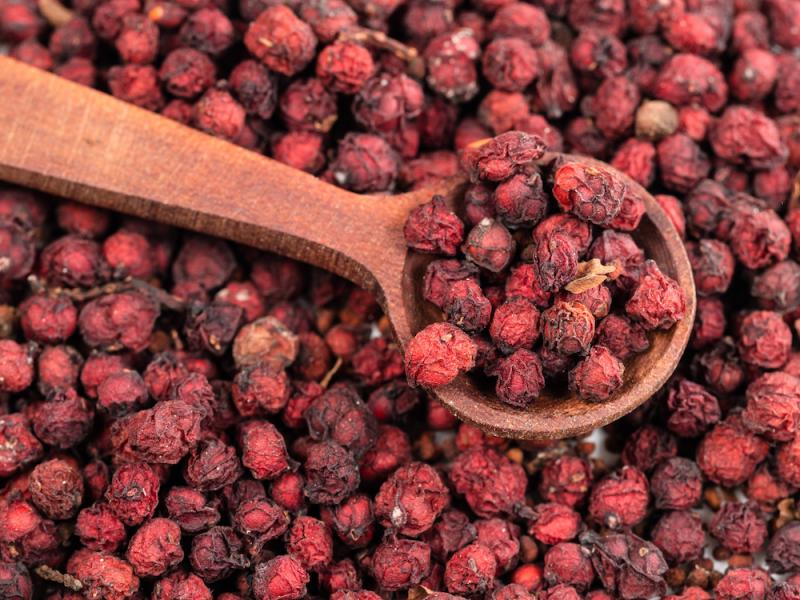 Schisandra contains about 40 lignans, many of which have very positive effects on the liver. They enhance glutathione production (glutathione is a very important intracellular antioxidant), stimulate liver glycogen and protein synthesis, inhibit lipid peroxidation, improve bile acid metabolism, promote blood flow to the liver, and liver regeneration.
Schisandra contains about 40 lignans, many of which have very positive effects on the liver. They enhance glutathione production (glutathione is a very important intracellular antioxidant), stimulate liver glycogen and protein synthesis, inhibit lipid peroxidation, improve bile acid metabolism, promote blood flow to the liver, and liver regeneration.
As a hepatoprotective herb, schisandra has some of the same qualities as milk thistle. It helps to protect the liver against substances like alcohol, industrial solvents (like carbon tetrachloride) and drug medications. It is a also a good herb for reducing liver inflammation (hepatitis), whether the cause is viral, bacterial or chemical.
Adaptogenic and Harmonizing Actions
Schisandra is considered an adaptogen, but I think it has a much different mode of action than eleuthero. Eleuthero appears to modify the HPA axis, but I think the adaptogenic effects of schisandra are related to its liver-enhancing qualities. In traditional Chinese medicine, the liver is considered a harmonizing organ. It is believed to help all the different organs of the body work together smoothly.
I think this is a correct idea as the liver is the organ that is primarily responsible for maintaining the health of the blood, which both nourishes and removes waste from all tissues. The liver processes nutrients from the digestive tract to be carried through the blood and the liver also detoxifies both environmental chemicals and the body’s chemicals. It breaks down hormones and neurotransmitters that are no longer needed, which helps maintain biochemical balance.
The Liver, Eyes, and Antioxidants
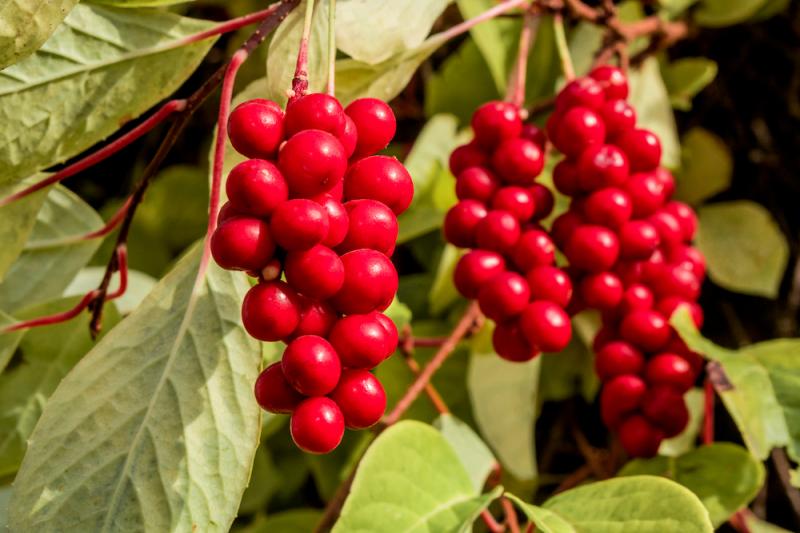 These liver functions require large quantities of antioxidants because the processing of waste materials generates free radicals, which must be neutralized to protect the liver. Schisandra has antioxidant and liver-protecting properties, which help the liver perform its biological harmonizing functions efficiently.
These liver functions require large quantities of antioxidants because the processing of waste materials generates free radicals, which must be neutralized to protect the liver. Schisandra has antioxidant and liver-protecting properties, which help the liver perform its biological harmonizing functions efficiently.
The eyes also require high levels of antioxidants because light also creates oxidative stress. Many vision problems including cataracts, macular degeneration, and diabetic retinopathy are caused by free radical damage to the eyes. In TCM there is a recognized link between eye health and the health of the liver. Many liver herbs, like schisandra, are said to “brighten the eyes.” So, I would consider glassy, glazed, and dull-looking eyes as an indication of potential liver congestion and a need for sour liver tonics like schisandra.
Schisandra and the Nervous System
Schisandra also acts as a nervous system stimulant. In TCM, the herb is said to calm the shen (spirit). It enhances memory, helps lift depression, and aids chronic fatigue and insomnia. However, taken in larger doses over a long period, it can overstimulate the system and result in nervous exhaustion much like the overuse of caffeine. So, as a nervous system aid, it probably works best in a formula.
For example, I’ve used a Chinese Fire-Increasing Formula (Yang Xin) to help people who are suffering from what we would call burn-out. The primary ingredient is schisandra, and the formula will improve energy levels during the day and aid sleep at night. It is helpful for anyone who is exhausted from chronic stress and is suffering from chronic fatigue and insomnia as a result.
Other Schisandra Benefits
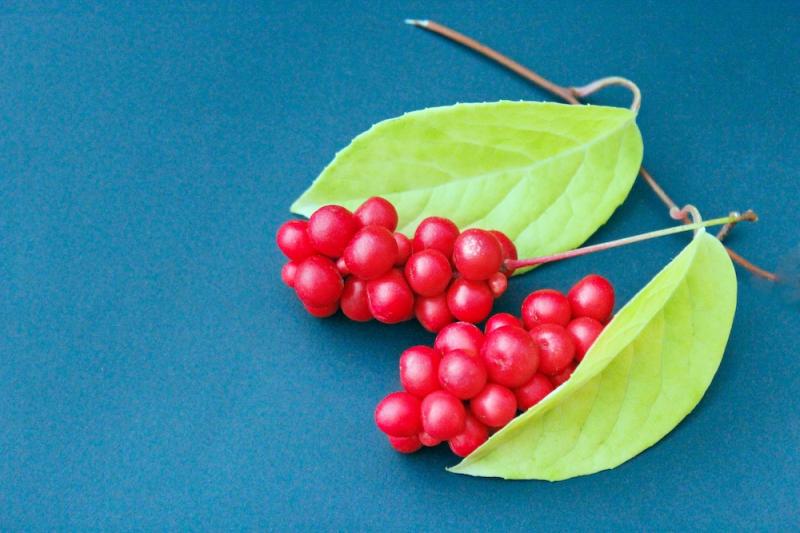 In TCM, schisandra is also used to astringe the jing. In Western terms, this means it is useful for preventing loss of bodily fluids. In this regard, it can help treat frequent urination, night sweats, early morning diarrhea, and even heavy menstrual bleeding. I find it particularly helpful for the burned-out person who is experiencing night sweats or has to wake up frequently to urinate.
In TCM, schisandra is also used to astringe the jing. In Western terms, this means it is useful for preventing loss of bodily fluids. In this regard, it can help treat frequent urination, night sweats, early morning diarrhea, and even heavy menstrual bleeding. I find it particularly helpful for the burned-out person who is experiencing night sweats or has to wake up frequently to urinate.
There are also cardiovascular benefits to schisandra. Its antioxidant properties help protect the heart and blood vessels and it also helps to reduce stress-induced heart palpitations. The Chinese Fire-Increasing Formula mentioned earlier, for example, helps people who have pain and pressure in their chest (angina) related to a high level of anxiety.
Using Schisandra
A person who needs schisandra as an adaptogenic tonic tends to be cold and prone to fluid loss through sweating or excess urination. They would also tend to have dull eyes related to a congested liver.
An appropriate dose as a general tonic would be 1-2 capsules or 30-60 drops of the tincture up to three times daily. It can also be taken as a tea. Schisandra is contraindicated for acute ailments like colds, flu, and fevers, and should also be avoided in autoimmune disorders. As a single remedy, I wouldn’t use it for more than two or three months, but it can be used for longer periods as part of an adaptogenic or liver-protecting formula.
But before you try using it, I'd highly recommend you should try tasting it. Chew on some of the berries and experience this five-flavored herb for yourself.
Steven's Articles
-

-
Eucommia Bark
A superior tonic that promotes kidney, structural,…
January
-

-
Goldenthread, Phellodendron, and Yellow Root
Three herbal remedies containing the infection-fighting…
-

-
Teasel
A traditional herb for healing bones and joints…
-

-
Barberry and Healthy Personal Boundaries
A thorny shrub for fighting infections and supporting…
December
-

-
The Evidence for Berberine
A yellow alkaloid found in traditional infection-fighting…
-

-
The Sensible Use of Caffeinated Herbs
Kola nuts, guarana, and yerba mate and other herbs…
-

-
The Health Benefits and Problems with Coffee
This popular caffeinated beverage can be beneficial…
October
-

-
Understanding Caffeine & Cellular Adaptation
Preserving the power of caffeine's buzz and the…
September
-

-
Horseradish
A pungent spice for aiding protein metabolism…
-

-
Banaba or Crepe Myrtle
A beautiful tree from Southeast Asia whose leaves…
August
-

-
Monkeyflowers
Flower essences to help see ourselves more clearly…
-

-
Mariposa Lilies
Strengthening the bond between mother and child…
-

-
The Noble Bay Leaf
A common kitchen herb for aiding digestion and…
-

-
Epimedium: Horny Goat Weed
A circulatory stimulant and kidney yang tonic…
July
-

-
The Medicinal and Nutritional Benefits of Apricots
A nutritious fruit and valuable medicinal seed for coughs

